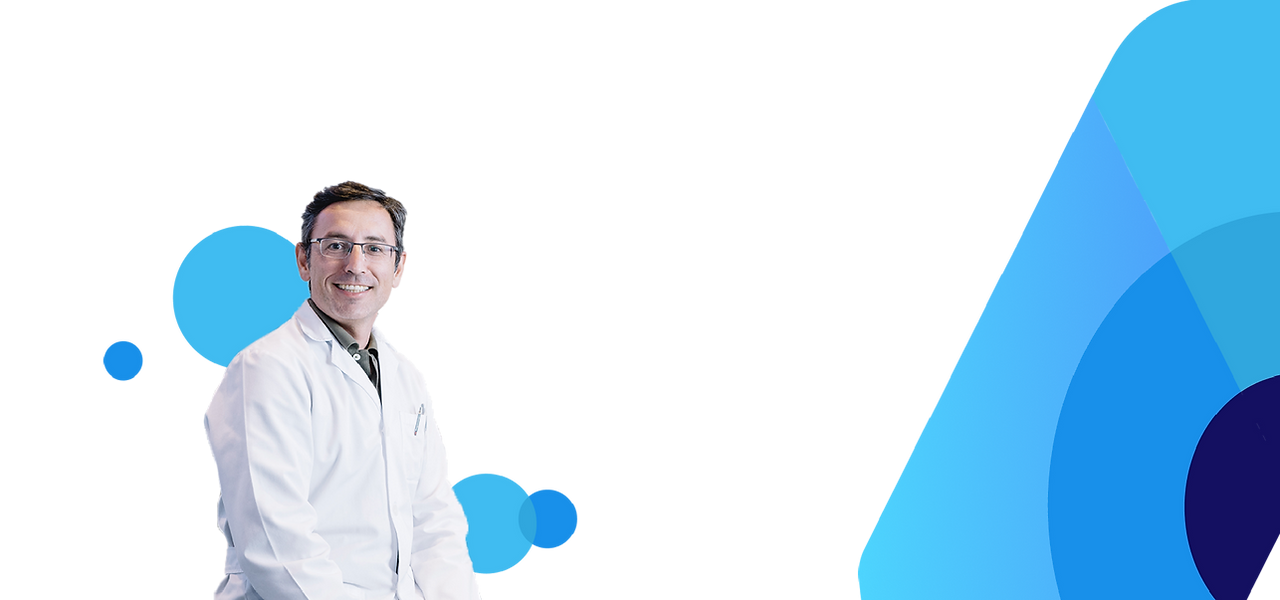Can AI replace experts in disease diagnosis?
- devops323
- Feb 2, 2023
- 4 min read
Using artificial intelligence (AI) in medical imaging for improving accuracy and reducing costs has become increasingly popular. But can diagnoses performed by AI replace healthcare professionals, and what does that mean for the future of healthcare and diagnostics?
Recent research suggests that AI can be used to diagnose diseases, including replacing specialists, in certain scenarios, but there are still many areas where human expertise remains invaluable. In this article, we'll look at the current state of AI-based disease detection for medical imaging, how it compares to traditional methods, and what potential benefits we could gain with its wider adoption.
AI-Based Disease Detection for Medical Imaging
AI-based diagnostics for medical imaging rely on software to analyze large amounts of data from various sources, such as MRI scans, CT scans, and X-rays. By training the AI to distinguish between images with the disease and those without, the AI can learn to identify diseases accurately and detect abnormalities in a fraction of the time it would take a human doctor or radiologist to do so.
Currently, trained AI models can detect a range of indications, including diabetes, tuberculosis, skin diseases, and others. We can expect this list to grow as medical diagnostic AI expands into more applications.
Recent Research on AI for Medical Diagnosis
Recent research has shown that AI can accurately detect specific cancers, heart irregularities, and even Alzheimer's Disease with a high level of accuracy. In one 2019 study that reviewed all currently available medical literature on the subject, an AI model correctly identified diseases in 87% of cases, compared to the 86% that healthcare professionals achieve. The study highlights that AI can accurately diagnose diseases and perform similarly to healthcare professionals.
Additionally, an AI disease detection model used in a 2020 peer-reviewed study from Babylon Health and University College London scored better than 72% of general practitioner doctors when diagnosing written cases. While this is a different task from detecting disease in medical imaging, it does provide additional support for how AI can be trained to do trained specialists’ tasks.
AI and Medical Experts
When it comes to diagnosing diseases, AI certainly has its advantages over human experts. For instance, AI can analyze and process large amounts of data much faster than humans, meaning it can offer diagnoses in a shorter time. AI-based models are also more consistent than humans, which helps to reduce the risk of errors caused by human bias.
However, AI still has some ways to go before it can replace healthcare professionals. For example, AI-based diagnostics require large amounts of data and training to be accurate, meaning they may not be able to diagnose rare conditions with high accuracy.
If the accuracy between AI diagnostic screening and human-led diagnostic screening is similar, but AI can produce the diagnostic results faster, and with less error, it could be argued that AI will become the superior method of diagnosing diseases such as cancer or diabetes.
This realization is also reflected in the number of diagnostic technologies receiving FDA clearance and being adopted in healthcare. Diagnostic screenings for certain indications, including retinal conditions, are already being implemented in medical organizations. New AI-powered technology, such as the AEYE Health AI model, can determine whether an individual has diabetic retinopathy based on retinal images. The technology is replacing healthcare experts in detecting diabetic retinopathy, a common diabetes complication and the leading cause of blindness in American working-age adults. This technology provides an opportunity for more accessible screening, allowing for diagnosis, treatment, and vision loss prevention. We can likely expect to see wider use of this technology and further advancement as the industry finds more ways to use AI to its advantage while maintaining accuracy.
While AI has been proven successful in disease detection, it can be even more powerful when used alongside the expertise and experience of medical professionals. By using the strengths of both parties, we can improve the speed, specificity, and accuracy of diagnoses.
Benefits of AI Disease Detection
AI-based disease detection offers several potential benefits for healthcare providers and patients. As mentioned before, AI can analyze large amounts of data much faster than humans while maintaining sensitivity and specificity, meaning patients can receive a diagnosis quickly and accurately. Faster diagnostics could increase accessibility to screenings by reducing patient wait times, providing opportunities for early detection and treatment, reducing costs, and ultimately improving the quality of care.
Greater availability of diagnostic screenings through AI could also increase individuals' access to care, especially for populations already underserved or more likely to forgo a doctor's visit due to a lack of financial and social accessibility. The speed and accuracy of AI diagnostic screening could also mean earlier detection of diseases, creating more treatment opportunities and, ultimately, better patient outcomes. Additionally, AI-based models are not subject to the same biases or errors that humans are, meaning they could deliver more accurate diagnoses than human doctors in many cases.
Implications Going Forward
As AI-based disease detection technology improves, we'll likely see more of these models used in healthcare settings as we move towards increased use of digital health services. This could have major implications for the healthcare industry, from reducing costs and wait times, to improving accuracy and outcomes. Additionally, patients may become more trusting of AI-based diagnostics, given their speed and accuracy, which may in turn create more opportunities for AI to be used in healthcare settings. While there are still many challenges to overcome before AI becomes commonplace in medicine, it's clear that this technology has the potential to revolutionize medical diagnosis.
Final Thoughts
AI models are already implemented in so many areas of our lives, allowing us to increase efficiency and accuracy. As new studies are performed to test the accuracy of AI in healthcare, we'll gain a better idea of the new ways it can be applied to improve healthcare accessibility and ultimately patient outcomes.





